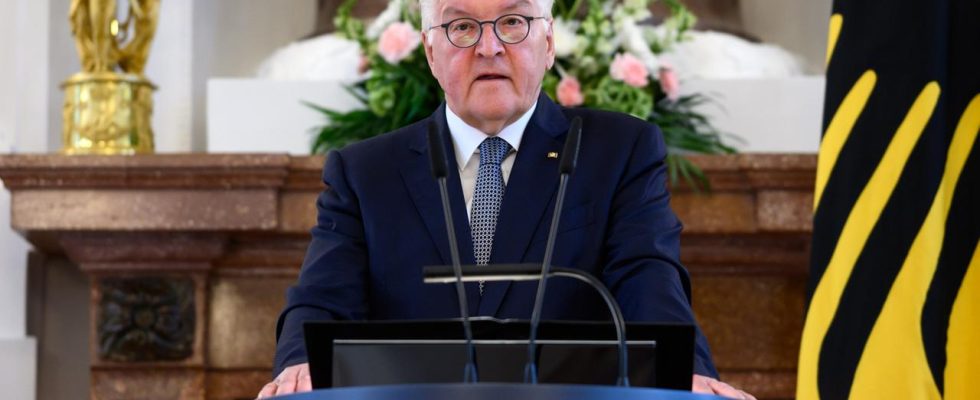The Federal President calls for those who are politically persecuted to be welcomed into Germany “with open arms” – the country’s own “history of exile” obliges us to do so. Steinmeier directs concrete criticism at Belarus, Turkey and Iran.
At a cultural event in Bellevue Palace, Federal President Frank-Walter Steinmeier referred to Germany’s responsibility for international artists and intellectuals who are threatened in their homeland and have to leave. “We in Germany have a special obligation from our history, to those who are politically persecuted in their homeland,” said Steinmeier. These are people who are “deprived of their rights, who have to flee and go into exile to be granted a safe home,” said the Federal President.
During the National Socialist period, many citizens – including many of the best artists and intellectuals – were forced to leave Germany. “They depended on being offered protection and refuge,” said Steinmeier, according to the previously published text of the speech.
Many of those who were expelled under National Socialism made themselves available to the armed forces or secret services of the Allies, who were supposed to liberate Germany from the dictatorship, said the Federal President. It was precisely in the uniform of the liberation troops that these emigrants would have lived out their love for Germany. They were “patriots in foreign uniforms”. “The German history of the last century, and German cultural history in particular, is essentially a history of emigration, of exile,” says Steinmeier.
Among other things Nobel laureate in literature Mueller as a guest
Several artists now living in Germany were invited in Steinmeier’s name. They should tell about their experiences. The guest list included Herta Müller, who grew up in Romania and the Nobel Prize in Literature, the Sri Lankan-born writer, philosopher and theologian Senthuran Varatharajah, and the Turkish writer Asli Erdogan.
Among those who have found refuge in Germany today are important artists, committed fighters for their country – like those who had to leave Germany at the time. In this context, Steinmeier also recalled people who had not found any safe haven but had been imprisoned or died in their countries, including the Iranian Jina Mahsa Amini, who died violently in a police station almost a year ago.
Criticism of Belarus and Turkey
Steinmeier also criticized the detention of journalists and human rights activists in Turkey and Belarus. In Belarus, prison conditions have been getting worse for months. Addressing the ruler there, Alexander Lukashenko, he said: “We’re not looking the other way.”
Having to leave your homeland is an age-old human trauma, said Steinmeier. “Having to go into exile always goes to the roots of every existence, to the innermost core of every life.” Because everyone wants to have a home, a homeland where they belong, where their loved ones are, where they can hear and speak the language of their childhood.
“And if he has to look for a new home abroad, then he should find open arms, open hearts, then a future, a good future should be possible for him – temporarily or for the rest of his life,” said the Federal President.

